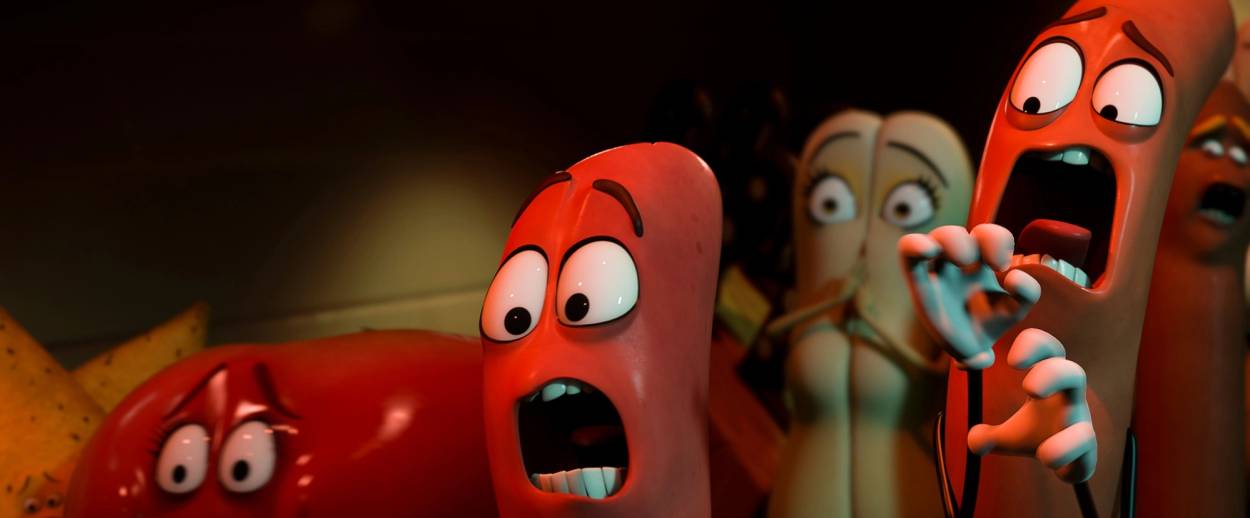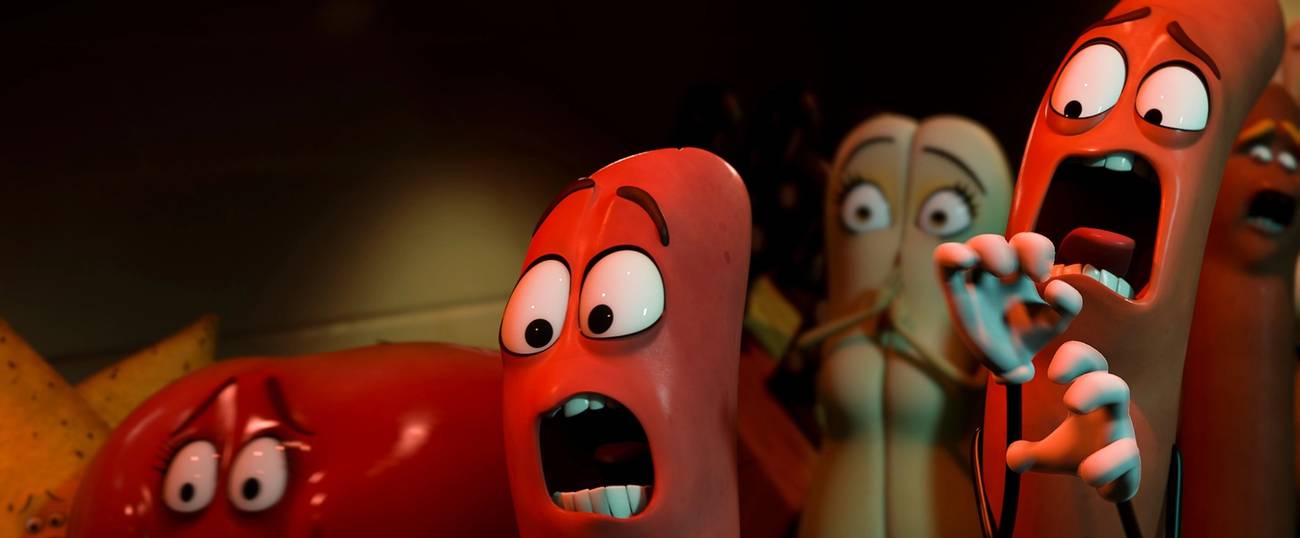Seth Rogen’s ‘Sausage Party’ Is Predictably Entertaining and Surprisingly Thoughtful
The animated film interweaves painful food puns and bizarre parody with existential questions




The last time Seth Rogen and Evan Goldberg, the writers of this weekend’s new animated film Sausage Party, got the whole gang together, it was for This Is the End (2013). In that apocalypse comedy, Rogen, along with James Franco, Jonah Hill, Danny McBride, Craig Robinson, and Michael Cera (among many more), spoofed the end-times genre with a movie full of drugs, dick jokes, and self-referential humor. Essentially, they all played versions of themselves, debating the merits of their own movies. Meanwhile, a semisubstantial religious debate took place in the background of the film. Pretty much everyone has been sent to heaven or hell in its postapocalyptic world, except for the protagonists. And so, we ponder: How does one atone for one’s past sins? And will it all mean anything in the end?
For those who aren’t too familiar with Rogen’s and Goldberg’s comedy, the idea that there’s anything to be analyzed in their fare can sound far-fetched. And yet, in Sausage Party, their newly released animated comedy (rated very R), they’ve once again asked larger questions about belief and reason in a movie that doesn’t seem to take much seriously at first blush.
In this animated world, sentient grocery store items vie to be selected by “the gods” (i.e., shoppers) to be taken to the “Great Beyond,” outside the confines of their supermarket home. Rogen voices a hot dog named Frank—if you think this will be the only food pun, you’re sorely mistaken—who shares a package with Hill and Cera, and anxiously awaits the moment when he and his hot dog bun girlfriend Brenda (Kristin Wiig) will be selected by the gods to go to the Great Beyond together. The same gods who, according to the Pixar-style opening number, will take them where “we’re sure nothing bad happens to food.” When a traumatized container of honey mustard (McBride) is returned to the store after witnessing the true destiny of his store-mates, he tries to warn the others of their fate, telling them that the gods are actually “monsters.” Shortly after, he plummets to the floor, leaving Frank with questions he’d never considered before.
Along the way, Frank and Brenda meet a bagel and a lavash, bitter enemies who serve as stand-ins for the Israelis and the Palestinians (“But you’re from the same aisle!” Frank reminds them); a bro-y douche out for revenge on Frank named, well, Douche (Nick Kroll); and a Salma Hayek-voiced taco with feelings for Brenda. The puns on food idioms uttered by the characters are endless.
When the truth is finally revealed to those who get taken home, it’s hilariously horrifying; the hot dog voiced by Hill, watching a “god” pop some baby carrots, screams “They’re eating children!” As Michael Cera’s surviving hot dog, a nervous wimp named Barry, comes to realize, the only way to deal with a god with disdain for you is to kill it.
And that is ultimately what the movie comes down to. When Frank tries to warn the other food of their fate, their own belief in the benevolence of the gods (created as a calming fiction by the “immortals,” aka the nonperishable foods) causes them to reject Frank’s pleas outright, while he berates them for their stupidity in return. But when Brenda implores him to understand that beliefs can’t be simply torn away from people by someone equally as clueless about life and what it means, he’s able to connect with the other food more deeply. Together, with the aid of some bath salts acquired by a newly-confident Barry, they’re able to defeat all the gods in the store. The hedonistic abandon they end up embracing in their post-gods world can only be described as one of the most bizarre scenes in recent mainstream comedy history.
If you’re a fan of Rogen’s and Goldberg’s humor, then you’ve come to the right place; a weed-smoking box of grits voiced by Craig Robinson is just one of the familiar comforts in store. For everyone else, the chance to hear Edward Norton’s spot-on Woody Allen impression as Sammy Bagel Jr. should suffice.
Jesse Bernstein is a former Intern at Tablet.